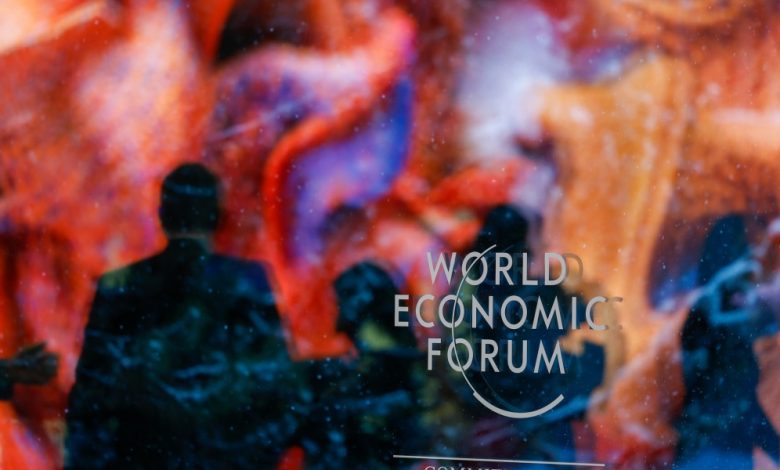WEF 2023: In Davos, a paused club instead complains of tax “hypocrisy” as the richest climate for discussion

When the World Economic Forum kicks off in Davos, Switzerland on Monday, it will be hard to miss the dozens of sessions on the global climate crisis. But don’t look for the organization that first brought the issue of sustainability to Davos 50 years ago. The Club of Rome, made famous in the early 1970s for sounding the alarm bell about the planet’s ‘limits to growth’ – including in Davos – is being banned from the event this year.
The reason may be a disagreement. Last Friday, the club and its allies released a letter urging leaders in Davos to tax “wealth, income, businesses and windfall gains” more progressively to counter the climate emergency. Among the signers was a co-author of the original limits of growthKate Raworth, the economist of Donut Economics, and the club’s co-presidents.
But such a message is unlikely to have gone down well with the Swiss ski resort. Dealing with the energy, food and climate crisis is certainly one of the five thematic pillars of the annual conference. “Climate protection” is also the subject of dozens of sessions. But the same cannot be said for discussions about taxes, wealth or inequality. There is exactly one session on tax reform and two on inequality.
Of course, taxes will become increasingly difficult to sell to the global business elite. They are, after all, a zero-sum game. A dollar paid to the government in taxes is a dollar less in profits for the company and its shareholders. This seems to be less the case with climate protection. Some companies are already making money from the energy transition and are benefiting from using the green economy as an opportunity.
But for Sandrine Dixson-Decleve, co-president of the Club of Rome, this reasoning makes no sense. “Social turning points will be our greatest challenge in the 21st century,” she told me on the phone on the way to Davos. “We cannot talk about the climate without talking about the hypocrisy of our tax structures.”
In their letter, the club acknowledged the difficulty of getting their message across. “Business leaders in Davos could feel this strategy this week [taxing wealth, income, companies and windfall profits] is against their short-term and individual interests,” they wrote. But they continued to call it a “limited” and “self-defeating” view.
Taxes strengthen societies and governments, the argument goes, and that will be crucial as the world tackles the so-called “polycrisis” in climate, energy, food, immigration and other areas.
But is that enough of an argument?
There are at least a few tax fans in the convention center this week who could move the debate forward. Gabriel Zucman, the French economist known for his research on tax havens, will be one of the participants at the tax session in Davos. Mathias Cormann, secretary-general of the OECD, the intergovernmental organization trying to raise the global tax barrier, is another.
From its presence in Davos, the Club of Rome will also hold talks with governments and individuals whom it hopes to engage in their tax hike plans. These include John Kerry, the US President’s special representative for climate issues; Ursula von der Leyen, President of the European Commission; Kristalina Georgieva, Executive Director of the International Monetary Fund; and United Nations Secretary-General Antonio Guterres.
As the Club of Rome well knows, trying to convince the global business elite of something that will benefit them in the long run, but not in the short run, is in itself a long drawn-out effort. It took nearly 50 years for the club’s views on the limits to growth to be endorsed by business leaders. Already, two-thirds of Americans have a positive opinion of the IRS, a 20% increase from the 1980s, 1990s and most recently 2010.
But if the club is right about the urgency of the social and economic crisis we are facing this time, they better hope that their justification in Davos will be a short time coming. And to do that, they must either get back into the debate directly, or find some powerful allies around the World Economic Forum. So far, this has been a limit to the growth of the Club of Rome in Davos.
Learn how to navigate and build trust in your organization with The Trust Factor, a weekly newsletter exploring what leaders need to succeed. Sign up here.



